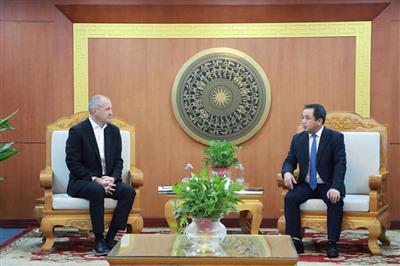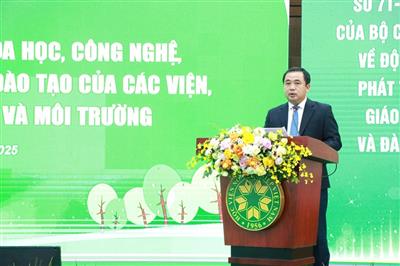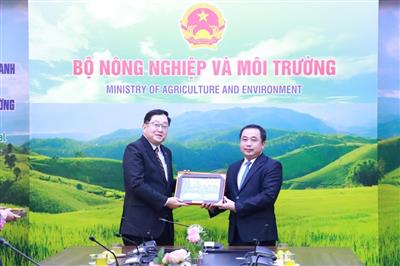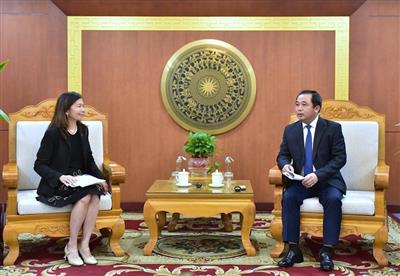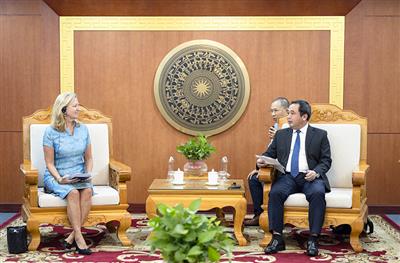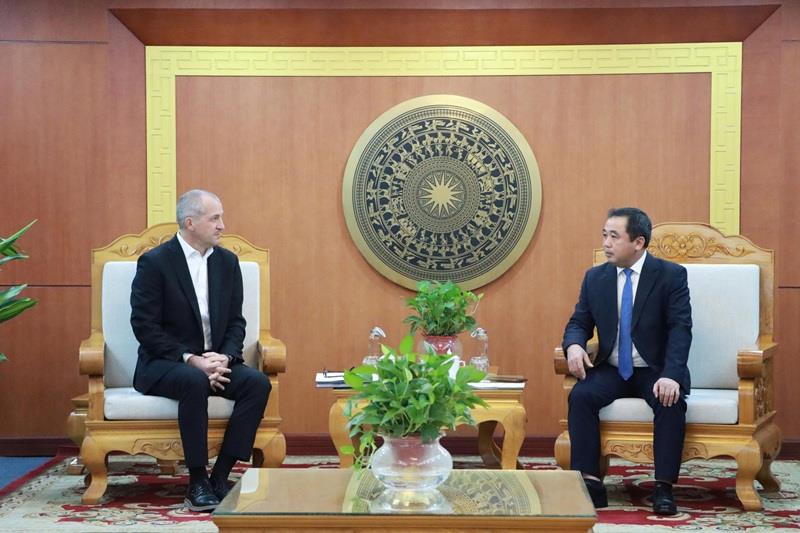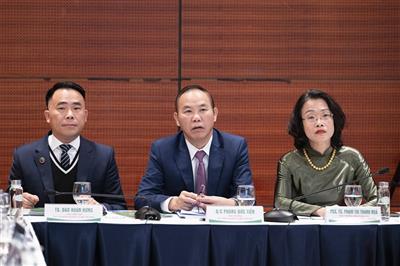
Vietnam-Japan: Advancing sustainable cooperation in disaster risk reduction and climate adaptation
05/09/2025TN&MTOn September 5 in Tokyo, the Ministry of Agriculture and Environment of Vietnam and the Ministry of Land, Infrastructure, Transport and Tourism of Japan (MLIT) held a signing ceremony to extend their Memorandum of Understanding (MoU) on cooperation in disaster risk reduction and climate change adaptation for the 2026-2030 period. The event took place as the two sides had just launched the third phase of their Medium- to Long-Term Vision for agricultural cooperation, underscoring a strategic and comprehensive commitment between the two countries.
A decade of substantive cooperation in disaster management
Since the first MoU was signed in 2013, Vietnam and Japan have prioritized areas with practical applicability and immediate impact on communities. A notable outcome has been the development and operation of a flood forecasting and water management system for the Huong River basin in Thua Thien Hue Province. Equipped with X-band radar technology developed in Japan, the system enables high-resolution monitoring of rainfall in both space and time, thereby improving the accuracy of localized flood forecasts, a persistent challenge in central Vietnam given the steep terrain and extreme rainfall events.
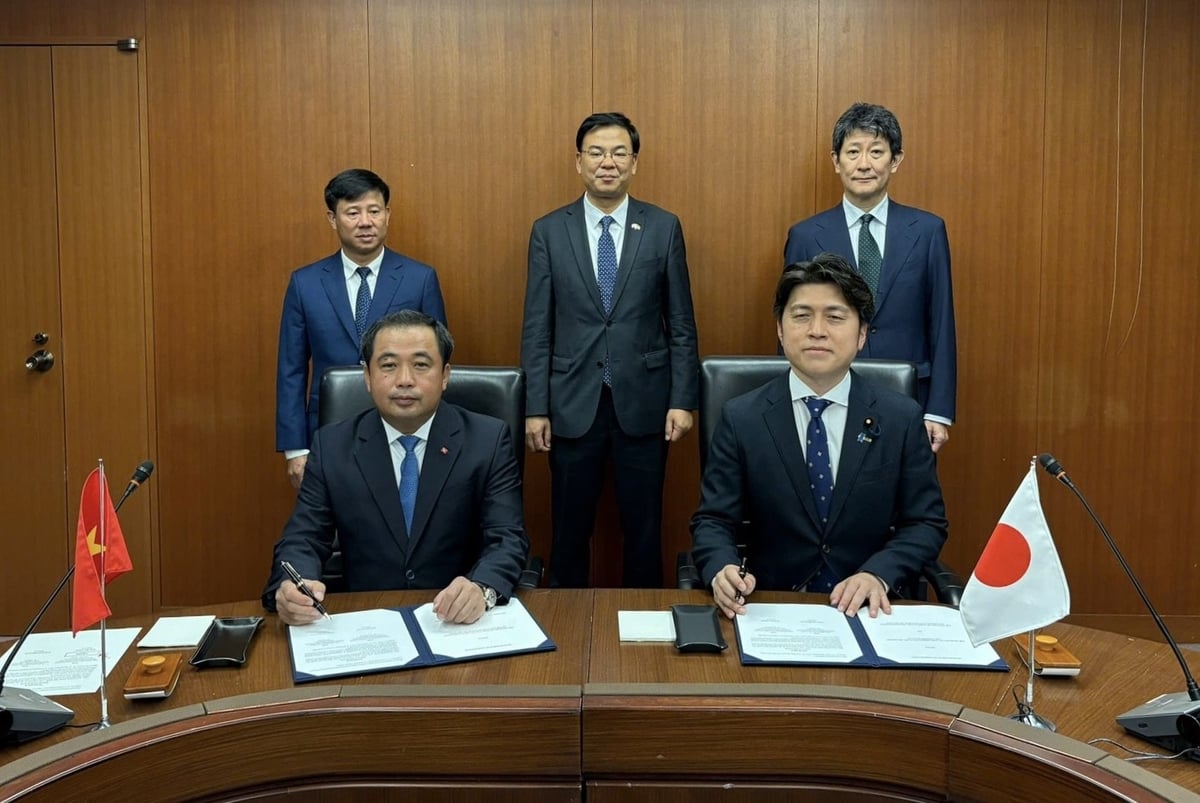
September 5 in Tokyo, Vietnam’s Ministry of Agriculture and Environment and Japan’s MLIT signed an MoU extension on disaster risk reduction and climate change adaptation for 2026–2030, highlighting a strategic partnership between the two countries (Photo: MLIT)
Alongside this, Japan has introduced and transferred SABO dam technology, designed to mitigate flash floods and landslides in mountainous regions. A pilot SABO structure was constructed in Son La Province, marking the first application of this technology in Vietnam. By trapping debris flows and landslide material, SABO dams reduce downstream pressure and safeguard both communities and critical infrastructure. Drawing on Japan’s own experience, the technology has proven effective in disaster-prone mountain regions and holds strong potential for wider application in Vietnam, especially as climate change intensifies extreme rainfall.
Beyond technical projects, cooperation has been institutionalized through 13 rounds of bilateral dialogues on disaster management over the past decade. These dialogues provide a formal platform to exchange lessons, share research results, and develop joint initiatives adapted to evolving contexts. More than policy exchanges, they have also fostered connections among experts, policymakers, and research institutions of both countries.
Importantly, Japanese experts have been seconded to Vietnam’s Department of Dyke Management and Disaster Prevention and Control for many years. Their direct presence has provided continuous technical support while serving as a “trusted bridge” that ensures project continuity and enables timely resolution of implementation challenges. This on-site model of cooperation has contributed to the durability of the partnership, turning commitments into concrete actions.
Extending the MoU 2026–2030: Affirming strategic commitment
The ceremony to extend the MoU for 2026–2030 was held in Tokyo under the co-chairmanship of MLIT Minister Nakano Hiromasa and Vietnam’s Acting Minister of Agriculture and Environment Tran Duc Thang. The event, marked by a spirit of respect and partnership, was recognized as an important milestone laying the foundation for the next phase of bilateral cooperation in disaster risk reduction and climate adaptation.
In his remarks, Minister Nakano Hiromasa affirmed that the renewed MoU not only builds on achievements made over the past decade, but also opens new prospects for collaboration. He emphasized Japan’s readiness to continue sharing technology, disaster management expertise, and capacity building support for Vietnam in the face of increasingly complex climate-related disasters. According to Minister Nakano, bilateral cooperation should expand both in scope and depth, from forecasting and early warning to advanced technical applications such as SABO dams, flood control systems, and landslide risk management in mountain areas.
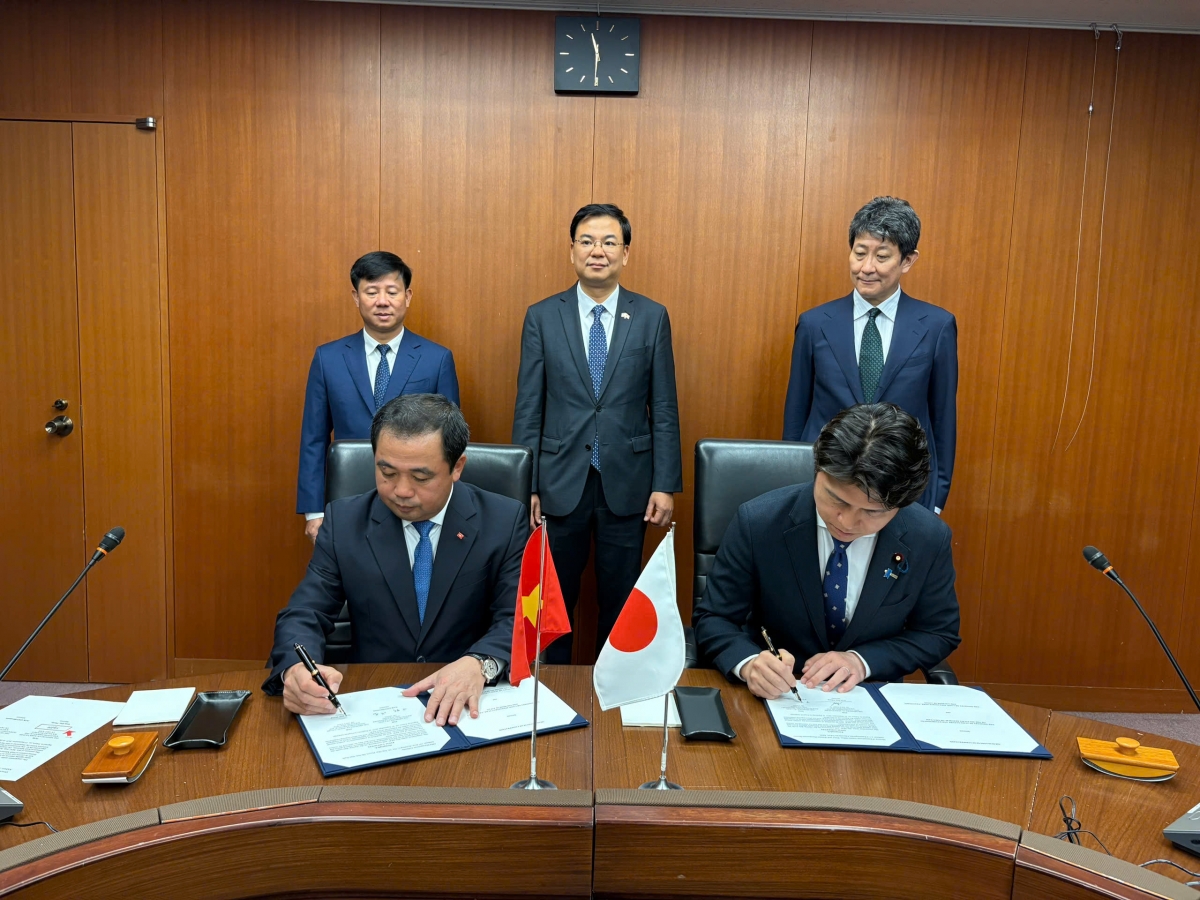
The signing ceremony took place in a solemn and amicable atmosphere, reaffirming the sustainable and effective cooperation between Vietnam and Japan in disaster risk reduction (Photo: MLIT)
For Vietnam, Acting Minister Tran Duc Thang expressed sincere appreciation for the timely and effective support provided by the Government and people of Japan, particularly during emergency disaster situations and in strengthening Vietnam’s institutional capacity. He stressed that the extension of the MoU for 2026–2030 carries strategic significance, representing a strong commitment by both ministries to coordinate action and support each other in reducing disaster risks and adapting to the growing impacts of climate change.
The signing also gained added significance by taking place just one day after the Vietnam–Japan High-Level Agricultural Dialogue on September 4, where the two sides approved the third phase of the Medium- to Long-Term Vision for agricultural cooperation. This next phase is expected to broaden collaboration beyond disaster response to cover strategic fields such as advanced technologies, sustainable agri-food value chains, digital transformation in agriculture, and environmental protection.
Experts note that the parallel advancement of these two processes—the extension of the MoU on disaster cooperation and the launch of Phase 3 of the agricultural vision—reflects the comprehensive approach adopted by both governments. Disaster resilience and sustainable agricultural development are seen as twin pillars that reinforce each other, while contributing to the shared commitments of Vietnam and Japan toward the Sustainable Development Goals (SDGs).
Expanding ODA cooperation for sustainable development
As part of the working visit, Acting Minister Tran Duc Thang met with the leadership of the Japan International Cooperation Agency (JICA) to review progress and set directions for priority ODA projects. Both sides reaffirmed that development cooperation remains a vital pillar, encompassing not only financial assistance but also technology transfer, capacity building, and policy advisory support.
Acting Minister Tran Duc Thang emphasized: “Projects supported by JICA are of strategic importance, addressing core issues such as water management, training capacity, and the development of agri-food value chains. Cooperation with JICA has delivered tangible results, from biodiversity conservation to improving community livelihoods.”
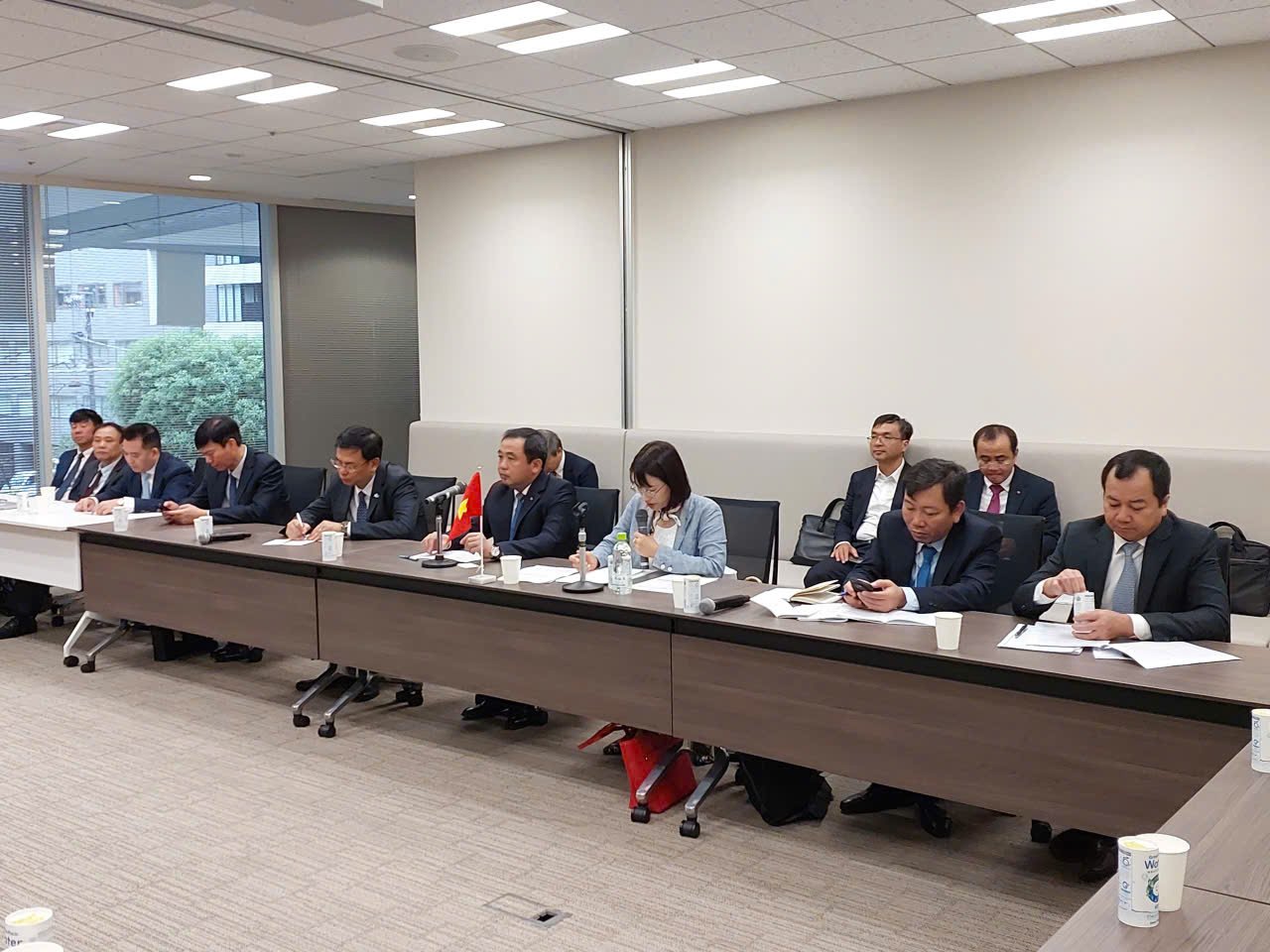
Acting Minister Tran Duc Thang affirmed that JICA-supported projects are strategic, addressing core issues from water management to value chain development, while contributing to biodiversity conservation and community livelihoods (Photo: ICD)
One prominent example is the SABO dam technology in Son La. What began as a pilot project has now demonstrated its effectiveness and is recognized as a concrete success in bilateral ODA cooperation. The Acting Minister affirmed Vietnam’s readiness to explore options for scaling up SABO applications, while working with JICA to establish suitable financing mechanisms for replication in other mountainous areas.
Beyond SABO, a number of other strategic initiatives are moving forward. JICA 3 has been adjusted and is ready for implementation; JICA 5 is undergoing preparatory research; the SIM-NDC project supports Vietnam in meeting its emission reduction commitments; and a waste management program based on a circular economy model is also in preparation. Together, these initiatives not only contribute to green development but also align directly with Vietnam’s pathway to achieving Net Zero by 2050.
Of particular note is a US$90 million ODA loan co-financed by JICA, FinDev Canada, and SMBC, signed on July 31, 2025. The loan is expected to provide critical long-term financing for Vietnam’s agricultural sector, enabling investment in technological innovation, enhanced processing capacity, and value-added exports. Acting Minister Tran Duc Thang said: “We hope JICA will continue to prioritize projects in high technology, digital transformation in agriculture, OCOP, and human resource development in water management and agro-processing, while also supporting the expansion of the SABO system in Son La and addressing technical issues to accelerate cooperation.”
JICA’s leadership reaffirmed their readiness to dispatch long-term experts in disaster management, sustainable agriculture, and circular economy. For its part, Vietnam pledged to facilitate procedures and ensure ODA funds are swiftly translated into practical results, thereby strengthening resilience and promoting sustainable agriculture and environmental management.
The extension of the MoU for 2026–2030 is not merely a continuation in form, but a reflection of the strategic vision shared by Vietnam and Japan in disaster risk reduction and climate adaptation. After more than a decade of joint efforts, ranging from technical projects such as X-band radar and SABO dams to diverse ODA programs, the cooperation has advanced from pilot initiatives to a strategic scale, reinforcing the foundations of sustainable development and protecting community livelihoods.
In the face of increasingly complex climate challenges, the renewed commitments between the two ministries carry long-term significance: they not only strengthen Vietnam’s capacity to withstand natural disasters, but also drive deeper integration of its agriculture–environment sector into global standards. Vietnam–Japan cooperation thus represents not only a bilateral partnership, but also a meaningful contribution to global goals on emission reduction and sustainable development.
Minh Thao


